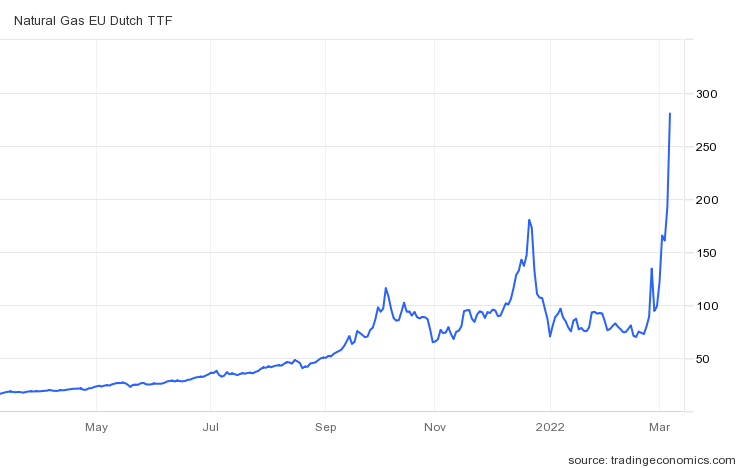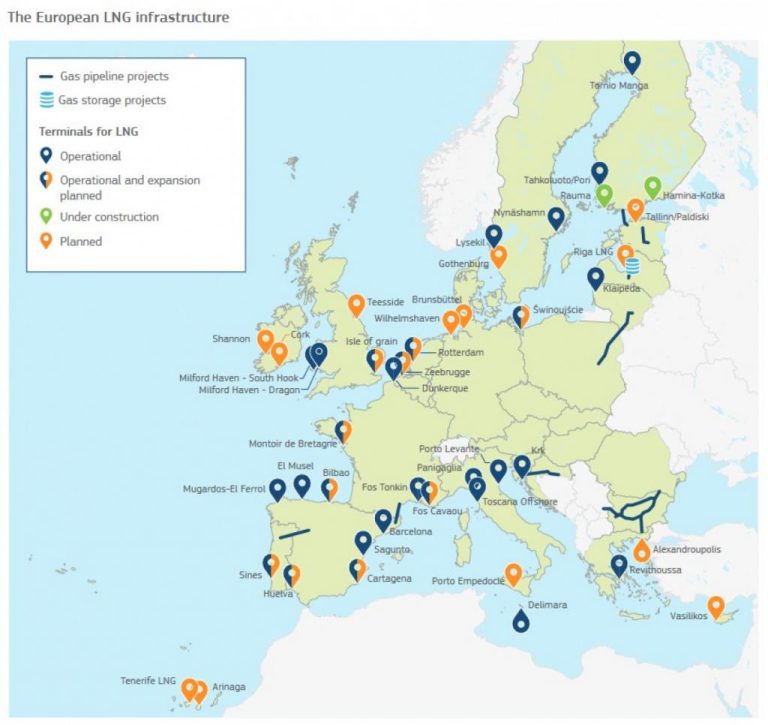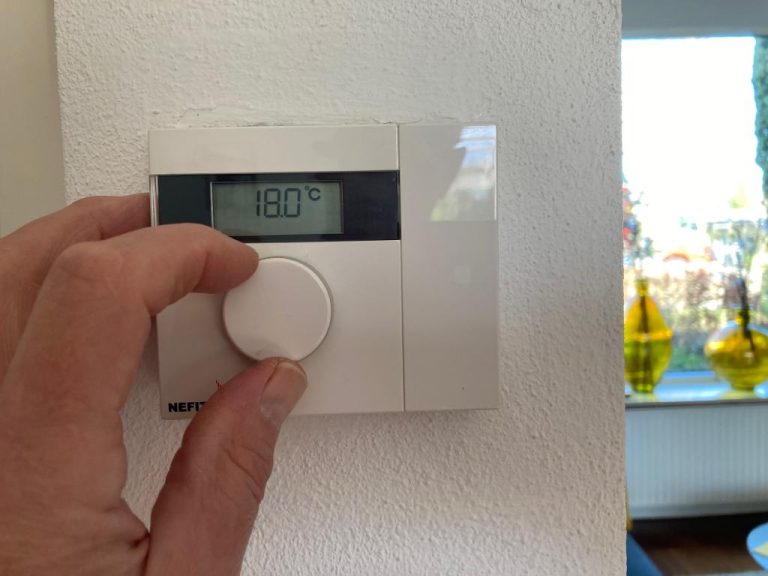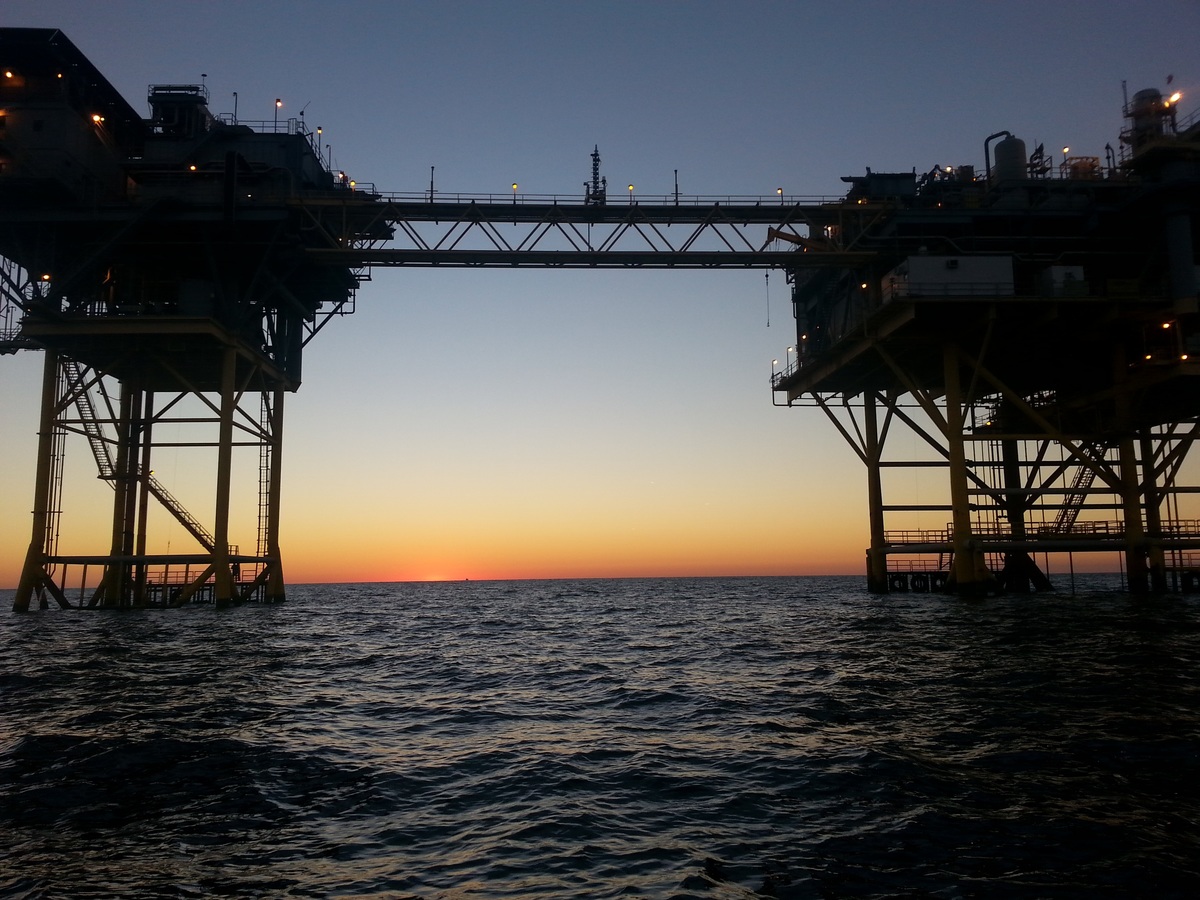With more LNG terminals and 10% less gas consumption, Europe could be independent of Russian gas, according to energy analyst Kornelis Blok. But it will not be easy.
Unintentionally, the dependency from Russian gas has halved in recent months. (Foto: pxhere)
Until recently, Europe obtained 40% of its natural gas from Russia, but last year that figure dropped to 20%, according to Professor Kornelis Blok (Faculty of Technology, Policy and Management). Of the 90 TWh of natural gas, only 18 TWh came from Gazprom a few weeks ago. How is that possible?

The price of natural gas has increased tenfold in the last year. (Graph: tradingeconomics.com)
Russian minimum
According to Blok, “It already started a few months ago. Gas prices started to rise in October. This was because Russia fulfilled its contractual obligations but did not supply more gas than the minimum – as it usually did. This restraint caused shortages on the European market, pushing up prices to the EUR 80-100 per megawatt hour range. In the middle of the ocean, gas tankers bound for the Far East changed course to Europe because they could get more for their cargo. With such high prices, Europe was the prime market for LNG (liquid natural gas, eds.).”
There are now LNG terminals in dozens of places in Europe, and some existing ports are being expanded. Operational terminals are currently running at full capacity. So no extra LNG imports are to be expected in the short term, but they will be in the longer term. Can we reduce demand by 20% in the short term to cut out Gazprom?
 Europe is already working hard to expand LNG capacity. (Source: European Commission)
Europe is already working hard to expand LNG capacity. (Source: European Commission)
A gap of 20%
Blok continues. “The best-known example of reducing consumption is turning the thermostat a degree lower. This, coupled with other small measures, makes a difference of around 10% in gas consumption. That applies to households. You could do similar things in other sectors such as offices, schools and hospitals. If we could reduce consumption by 10%, that would be a substantial contribution to reducing our energy dependence on Russia.”
But even then, Europe will still have a 10% deficit. “That is why it is not a good idea to close nuclear power plants now,” Blok believes. Even coal-fired power stations could stay open longer. “That sounds strange coming from me, I am aware of that,” Blok says. “For me this falls in the same category as extracting more gas from Groningen: emergency measures. A more structural solution is the accelerated installation of solar panels, which is one of the few energy technologies with a very short lead time.”
But the most important thing right now is a nationally set course to save energy. Blok would like to see the Prime Minister use the current momentum to become independent of Russian gas.
 Lowering the thermostat by one degree can save up to 10% of natural gas consumption. (Photo: Jos Wassink)
Lowering the thermostat by one degree can save up to 10% of natural gas consumption. (Photo: Jos Wassink)
“We can quickly save 10% on our gas, but it’s not easy to get everyone to take action. There is a lot of willingness at the moment, but we need coordinated action. Rutte should now stand in front of the troops and say – as he did with corona – this is really necessary people, this is what we have to do.”
Do you have a question or comment about this article?
j.w.wassink@tudelft.nl


Comments are closed.